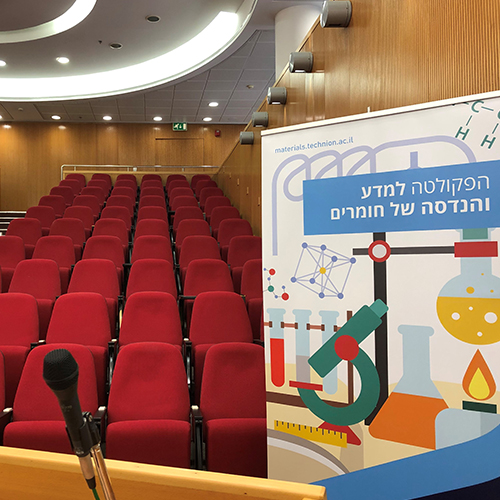
Ms. Rania Awad - Ph.D. Candidate
08/05/2025
David Wang Auditorium, 3rd floor Dalia Meidan Bldg.
13:30
Neurodevelopmental disorders include autism spectrum disorder (ASD) which affects 5.9% of the global population. Research indicates the potential therapeutic use of cannabidiol (CBD) to treat different neurodevelopmental disorders, including ASD. Intranasal drug delivery (i.n.) is a non-invasive and painless administration route that enhances drug bioavailability in the brain by bypassing the blood-brain barrier. However, i.n. has limited bioavailability due to the low nasal mucosa permeability. Various polymeric nanoparticles (NPs) have been investigated for i.n. delivery with different success. In this study, we investigate the nanoencapsulation of CBD within self-assembled polymeric NPs for the nose-to-brain delivery to increase the bioavailability of the CBD in the brain in ASD. We produced Pluronic® F127 polymeric micelles loaded 25% w/w of CBD. The loaded polymeric micelles display a hydrodynamic diameter of 23 ± 1 nm as measured by dynamic light scattering (DLS), and showed good compatibility and permeability in human nasal septum cell line RPMI 2650. The accumulation of CBD-loaded polymeric micelles in the brain of rats upon i.n. administration was confirmed by IVIS. Pharmacokinetic studies compared the CBD concentration in rat brains after i.n. (dose of 5 mg/kg) and oral (15 mg/kg) administration was assessed. Results revealed that 20 minutes after administration the i.n. route leads to 27.8% higher CBD concentration in the brain. Finally, the efficacy of this drug delivery system was demonstrated in behavioral studies in a model of autistic rats.


